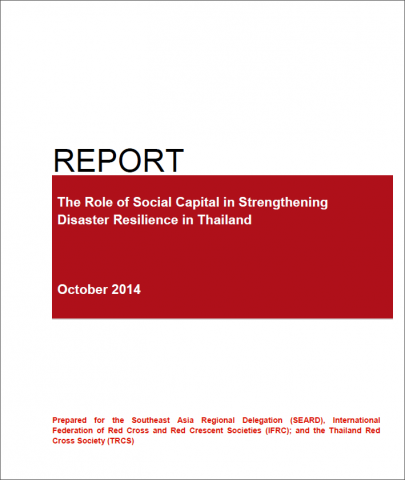The Role of Social Capital in Strengthening Disaster Resilience in Thailand


This study aims contribute the existing evidence base on how Social Capital can be harnessed to strengthen DRR in Thailand. While, social capital is generally recognized as an important means to building community resilience, there is still little knowledge about how it can be best utilized towards DRR efforts.
To this end, an extensive literature review is conducted coupled with field work comprised of community participatory workshops and surveys. The findings illustrate that throughout all three study communities, social capital is evident in the very fabric of Thai society, and is an important catalyst for collective action and community resilience. As such, investments in social capital can have significant spillover effects.
